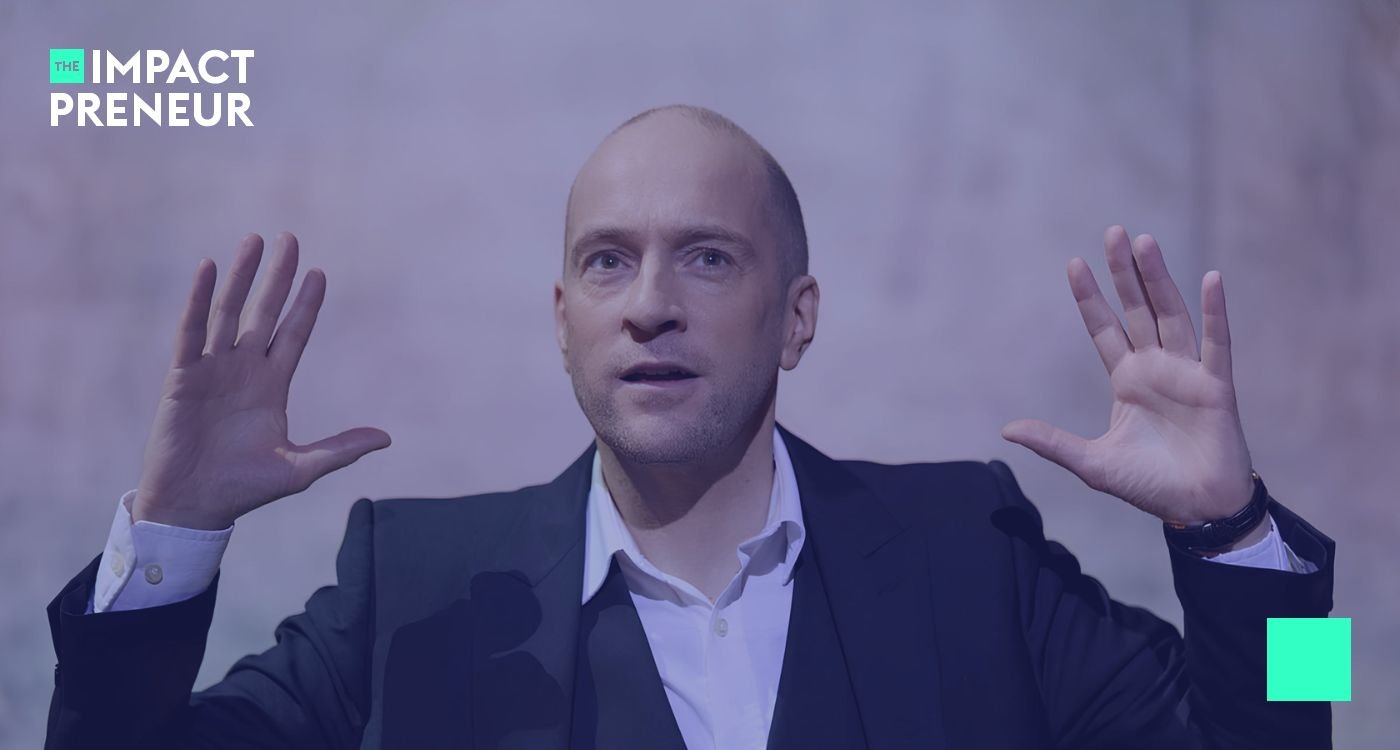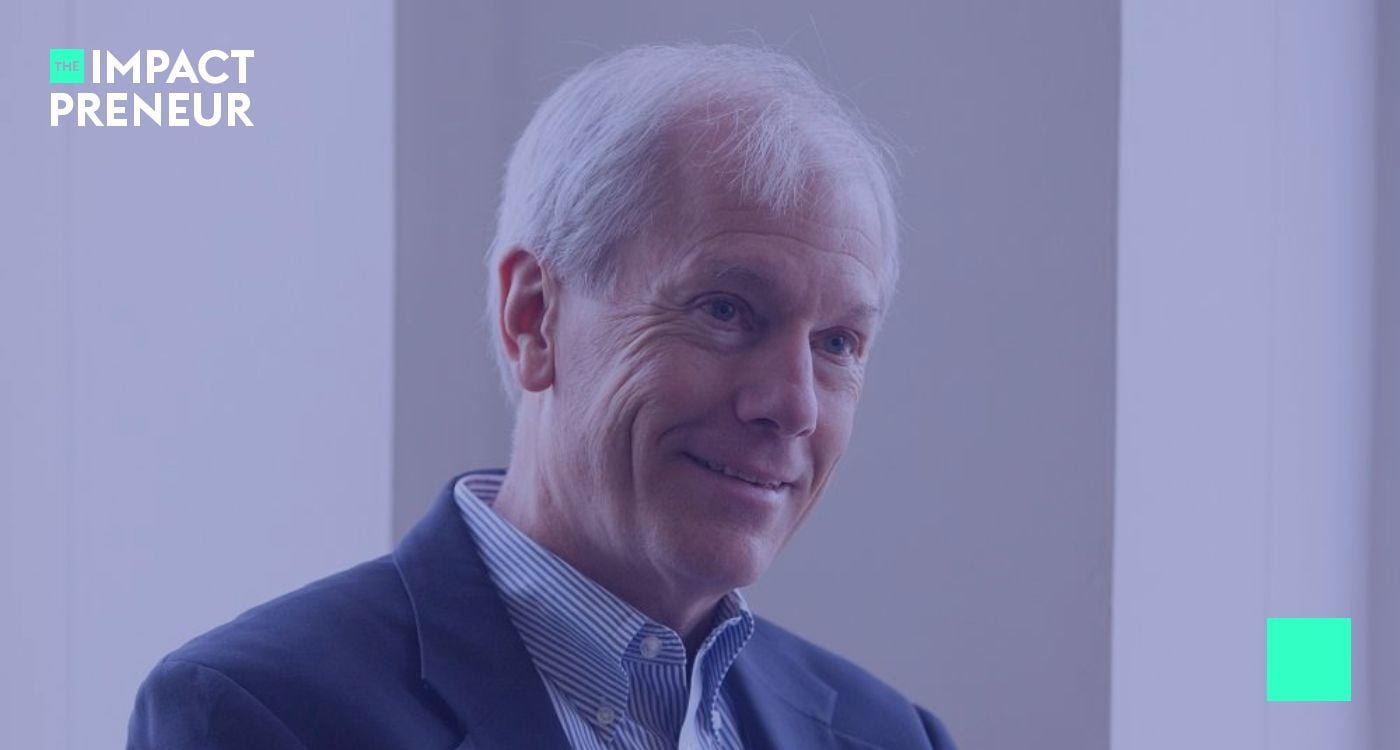Photo: Anthony O'Neal | Source: Success.com
Transforming your life and building wealth is about more than just money. It's about mindset, habits, and a clear vision. Anthony O'Neal, a renowned financial expert, shares essential strategies for achieving financial success and personal fulfillment. Here’s what you need to know to start your path towards a wealthier, more purposeful life.
Quick Bites:
- Understand who you are at your core.
- Have a clear vision for your life and finances.
- Teach and practice financial responsibility.
- Invest in continuous learning and self-improvement.
- Prioritize family and meaningful relationships.
Discover Your Core
You can't build wealth without understanding yourself first. Anthony shared a story about how his desire to please others led him to make poor financial decisions, like financing two leather couches he couldn't afford. True financial success comes from confidence and a clear sense of self. Without this, you’re easily swayed by societal pressures and poor financial advice.
“When we can really get down into our core and understand who we are, it impacts our wealth building.”
Anthony’s turning point came when he realized he was living for others and not for himself. This realization made him rethink his approach to money and life. He stopped trying to fit into someone else's mold and started focusing on what truly mattered to him. This inner clarity was the foundation for his financial turnaround. Knowing who you are and what you value is the bedrock of building wealth.
"I was trying to please everyone else. I was allowing her and him to tell me how I should think, how I should talk, how I should dress. And at my core, I wasn't confident in who I was."
Self-awareness not only helps in making better financial decisions but also in resisting the temptation to spend money on things that don't align with your values. Anthony's experience is a powerful reminder that wealth starts from within. By understanding your core values and aligning your financial goals with them, you set the stage for sustainable financial success.
Moreover, understanding yourself helps you stay resilient during tough times. When you face financial setbacks, knowing your purpose and values can keep you motivated. This internal compass guides you through challenges and helps you make decisions that are consistent with your long-term goals.
The Power of Vision
A vision for your life and money is non-negotiable. Anthony discovered his purpose—helping millennials and minorities manage debt and build wealth—after a low point in his life, living in his car. His turning point came when he realized the importance of having a clear mission. This vision not only guides your financial decisions but also keeps you motivated during tough times.
“Where there is no vision, people perish,” Anthony emphasizes.
A clear vision acts as a roadmap for your financial journey. It helps you set specific goals and creates a sense of direction. Without a vision, it’s easy to get lost and make decisions that don’t serve your long-term interests. Anthony’s story is a testament to the power of having a clear vision. It transformed his life and can do the same for you.
Your vision should encompass both your personal and financial aspirations. By aligning these two, you create synergy that propels you forward. Having a vision also helps in prioritizing your time and resources. It becomes a filter through which you can evaluate opportunities and decide whether they are worth pursuing. This focus ensures that you are always working towards your ultimate goals, making your efforts more efficient and effective.
Rethinking Rewards and Responsibility
One of the biggest mistakes parents make is giving children money without teaching them to earn it. Anthony advocates for paying kids for tasks outside the home, like washing neighbors’ cars, to instill a sense of work and value.
“Teach them the true value of working in exchange for finances,” Anthony insists. This lesson builds a foundation of financial responsibility and work ethic that lasts a lifetime.
Anthony’s approach challenges the traditional allowance system. Instead of giving children money for doing household chores, he suggests they earn it through external tasks. This method teaches kids the importance of hard work and financial independence from an early age. It’s about preparing them for the real world where money is earned through value creation.
Financial education should start early, and it should be practical. By involving children in real-world tasks, they learn about money management, savings, and the value of labor. These lessons are invaluable and set the stage for responsible financial behavior in adulthood. Anthony’s emphasis on practical financial education is a call to action for parents to rethink how they teach their kids about money.
Moreover, this approach helps children develop a sense of pride and accomplishment. When they see the direct results of their labor, it boosts their confidence and teaches them the importance of effort and perseverance. These traits are essential for success in all areas of life, not just finance.
Education Without Debt
Anthony’s advice on college is eye-opening. He encourages considering trade schools and community colleges as viable and often more practical alternatives to expensive universities. Highlighting examples of successful friends in trades like plumbing, he debunks the myth that prestigious colleges are the only path to success.
The high cost of college education has led many into substantial debt, which can be a significant financial burden. Anthony’s perspective offers a refreshing alternative. By choosing affordable educational paths, you can avoid debt and still achieve professional success. This approach emphasizes the importance of making smart financial decisions early in life.
Trade schools and community colleges offer practical skills that are in high demand. Anthony’s example of a friend who became a successful plumber underscores this point. These professions not only provide good income but also job security. It’s a reminder that success doesn’t necessarily require a degree from a prestigious university.
Moreover, by avoiding student debt, you start your professional life with a financial advantage. You can begin saving and investing much earlier, which compounds over time. This financial head start can significantly impact your long-term wealth and financial stability.
Living Below Your Means
Financial freedom comes from living below your means and creating margin. Anthony shares, “If you’re making ten thousand dollars a month, you should be living off six or seven grand.” This practice allows you to invest and save, building a cushion that leads to wealth. Avoiding debt and focusing on saving and investing are crucial steps in this process.
Living below your means is about making conscious choices to spend less than you earn. This discipline is the cornerstone of financial stability. It ensures you always have a buffer for emergencies and opportunities to invest. Anthony’s advice is a practical guide to achieving this balance.
Creating a financial margin gives you the flexibility to invest in opportunities that can grow your wealth. It also provides peace of mind, knowing you have funds set aside for unexpected expenses. This approach reduces financial stress and allows you to focus on long-term goals.
Furthermore, living below your means cultivates a habit of frugality. This mindset helps you appreciate what you have and avoid unnecessary expenditures. It’s about valuing experiences and relationships over material possessions. Anthony’s lifestyle exemplifies this principle, showing that financial freedom is about making intentional choices that align with your values.
Building a Financial Legacy
Wealth isn’t just about accumulating money; it's about passing down knowledge and opportunities. Anthony envisions leaving a legacy where his great-great-grandchildren will know his name because of the wisdom and wealth he passed down.
“I want to equip my kids with money but also with the knowledge to sustain it and take it further,” Anthony reflects.
Building a financial legacy involves more than just saving money. It’s about imparting the principles and values that help manage and grow that wealth. Anthony’s vision includes educating his children about financial responsibility and investing, ensuring they can continue building on what he started.
This approach to legacy-building is about creating a ripple effect. By educating one generation, you set the foundation for many future generations. Anthony’s emphasis on knowledge and wisdom ensures that his descendants will not only inherit wealth but also the skills to preserve and grow it. This is true financial empowerment.
Moreover, leaving a financial legacy is about making a long-term impact on your community. By passing down wealth and knowledge, you contribute to the broader economic stability and growth. This holistic approach to wealth is about creating sustainable prosperity for future generations.
The Importance of a Money Vision in Relationships
Couples must have a shared vision for their finances. Without it, conflicts and financial mismanagement are inevitable. A shared financial vision strengthens relationships by creating a common goal. It fosters teamwork and mutual understanding. When both partners are on the same page about their financial goals, it reduces conflicts and enhances cooperation.
“You have to have a vision for your life and for your money, and the two have to be congruent,” Anthony highlights.
Financial harmony in a relationship requires open and honest communication about money. Discussing financial goals, spending habits, and investment strategies ensures both partners are working towards the same objectives. This transparency builds trust and strengthens the relationship. Anthony’s emphasis on a shared vision is a call for couples to regularly discuss and update their financial plans.
Moreover, a shared financial vision helps in making strategic decisions about major expenses and investments. It provides a framework for evaluating opportunities and risks. By aligning their financial goals, couples can make decisions that support their long-term vision, ensuring financial stability and growth.
What You Can Do:
- Reflect on Your Core Values: Understand who you are and what you stand for.
- Create a Clear Financial Vision: Align your financial goals with your life purpose.
- Teach and Practice Financial Responsibility: Reward work and instill financial discipline.
- Consider Alternatives to Traditional College: Explore trade schools and community colleges.
- Live Below Your Means: Save and invest the difference to create financial margin.
By implementing these habits and strategies, you can transform your life and build lasting wealth. Remember, it's not just about the money; it's about creating a legacy of knowledge, opportunities, and financial freedom.
Questions on the Topic
Q: What are the key things holding people back from generating more wealth?
It’s not always about money itself; it’s often about who we are inside. If you really want to start building wealth, one of the key ingredients to being wealthy has nothing to do with money; it has everything to do with who you are and how much you believe in yourself. Finding and understanding your true purpose can significantly impact your wealth-building journey.
Q: How can someone discover their life’s assignment or purpose?
Discovering your life’s purpose often comes from deep self-reflection and seeking guidance. For Anthony, he found his purpose during a low point in his life while he was homeless. He realized he wanted to help young people avoid debt and build true wealth. “When you really want to understand your vision, you have to ask yourself why you want to go where you want to go and when you ask yourself that at least five times, you’ll develop a clear vision.” It’s about asking the right questions and being open to where the answers lead you.
Q: What are common financial mistakes parents make when teaching their kids about money?
One major mistake is paying children for chores that are part of their basic responsibilities, like making their bed or doing dishes. Instead, kids should be taught the value of working for money by doing tasks outside the home, like washing neighbors' cars or mowing lawns. Another mistake is promoting the idea that financing college is the only way to afford higher education, ignoring the value of community colleges and trade schools. Lastly, parents often emphasize the importance of a high credit score as the ultimate financial goal, rather than teaching broader financial literacy and wealth-building strategies.
Q: Can anyone become a millionaire, even if they start with minimal wage jobs?
Yes, it’s possible, but it requires a significant mindset shift and dedication. People need to overcome their past mistakes, expose themselves to new opportunities, and step out of their comfort zones. It’s about being willing to be uncomfortable for a season and continuously learning and adapting. Nothing extraordinary happens within our comfort zone; you have to step into your un-comfort zone to start exposing yourself to something that may expand you.




